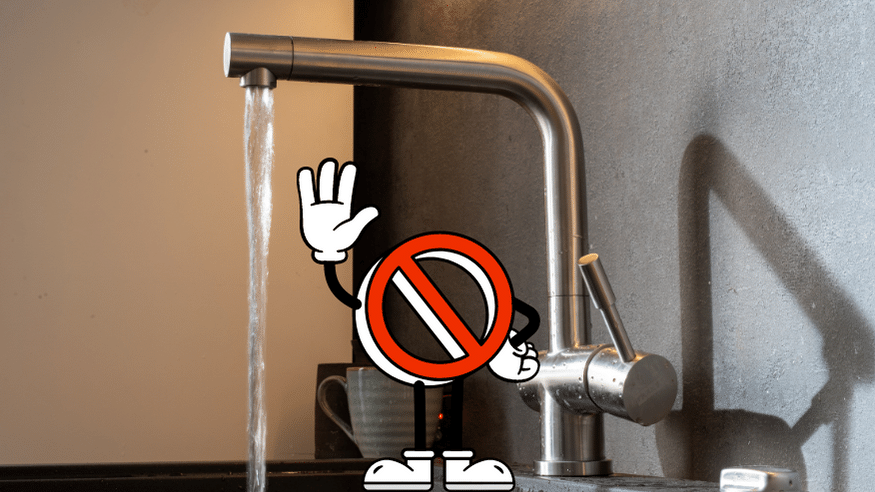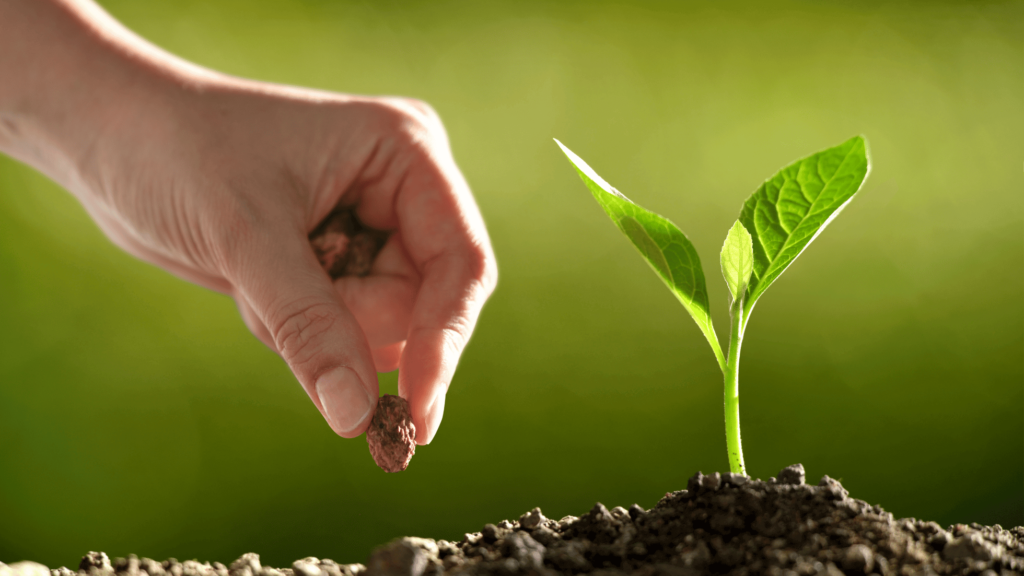In Islam, abuse of anything i.e., relationships, resources, and respect is highly prohibited. A balanced code of life I mean with its every expect to provide a lifestyle that can lead people to highlands here to eternity. Likewise, wasting water is considered a bad habit, back in the time of Rasool Allah SAW water was rear between the dunes of the Arabian Peninsula. He mentioned that not wasting water is rewarding in front of Allah has a very deep meaning, because it encourages people to think of respecting other people’s needs as well. If there is a tank and a group of people use water from that tank. Anyone of them being to abuse water usage will lead life tougher for others at first and also for that person too. This is something that Prophet Muhammad PBUH has taught us that we must respect the need of every other person who shares the same resource. There is some other reasoning as well. Firstly, our teachings strongly emphasize cleanliness. That is not appreciated in Islam. When we roughly use water, it becomes the reason for filth. The less we use water, the more stable our environment will be. Here are ahadees about cleanliness. Ibn al-Musayyib was heard saying :
“God is good and likes what is fragrant (Tayyib is ‘good’ and Tib is ‘perfume’, or ‘fragrance.’); clean and likes cleanliness; generous and likes generosity; munificent and likes munificence; so cleanse (I think he said, your courtyards), and do not imitate the Jews.” [1]
Abu Malik at-Ash’ari reported:
The Messenger of Allah (may peace be upon him) said: “Cleanliness is half of the faith…..” [2]
Secondly, It is believed that our earth is 71% covered by water. Out of this 3% is pure and fresh and in this ratio, only 1% is available for the inhabitants of this planet(the remaining is narrowed by glaciers). [3] It means that we have a scarcity of water. If we use it wisely, it may be beneficial for others. Helping others is also rewarding. Narrated Al-Bara’ bin `Azib:
The Prophet forbade us to use seven things: He forbade using gold rings, silk, Istabraq, Dibaj, red Mayathir, Al-Qassiy, and silver utensils. He ordered us to do seven other things. To pay a visit to the sick; to follow funeral processions; to say, “May Allah be merciful to you” to a sneezer if he says “Praise be to Allah”; to return greetings, to accept invitations; to help others to fulfill their oaths and to help the oppressed ones. [4]
How do we waste water?
There are numerous times in our day when we use water. Similarly, there are several ways where we might be ignorant about our use of water and might end up using an excess of it or wasting it. Let’s look at how much we use water and how we could be wasting it.
Washing Dishes
Generally, our households do not have a dishwasher, and we must ensure our utensils are thoroughly washed by ourselves or through paid servants. However, it is the most common way of using excess water and wasting it because the used water goes straight to the sewer. There is no use for it afterward. We should take measures to ensure that our water usage is not more than necessary.
Taking a Bath
Bathing requires an excess of water. Since bathing is a part of Sunnah, regular ghusl or showers are a part of our lives. However, it is also the most waste of water on our part. Nowadays, modern households have top-notch shower heads to produce great water pressure. But that comes with the cost of wastage of quite an amount of water that we can prevent if we use other tools, such as a tub, to effectively use water to take a bath without much wastage.
Performing Wudhu
We are recommended to perform wudhu or ablution five times daily to pray our obligatory prayers. While we may be using water for a religious act, we may still use it more than necessary since we often use the tap to help refresh our wudhu. With the continuous running of water, we tend to waste much of it, and performing ablution is no different. We should use just the water we need and recycle the remaining water. It was narrated by ‘Abdullah bin ‘Amr:
“The Messenger of Allah passed by Sa’d when he was performing ablution, and he said: ‘What is this extravagance?’ He said: ‘Can there be any extravagance in ablution?’ He said: ‘Yes, even if you are on the bank of a flowing river.'” [5]
Other Usage
Other uses of water, such as during regular visits to the restroom, using water to clean the floors or cars, using water-dependent air coolers when we are cooking, or just generally consuming it, all are a part of our routines where we often neglect the fact of using a great amount of water without even realizing it. We often get distracted and keep the water running or use more than necessary and leave the rest to be dumped. Ultimately, we make decisions, although unintentionally, that cost us the waste of water. That is what we must take care of. Whenever we are using water, we should be careful of the consumption of how much we are taking and how we are returning it. We must keep in mind that Allah does not like those who are wasteful.
Allah says in the Holy Quran:
۞ يَـٰبَنِىٓ ءَادَمَ خُذُوا۟ زِينَتَكُمْ عِندَ كُلِّ مَسْجِدٍۢ وَكُلُوا۟ وَٱشْرَبُوا۟ وَلَا تُسْرِفُوٓا۟ ۚ إِنَّهُۥ لَا يُحِبُّ ٱلْمُسْرِفِينَ
“O children of Adam, take your adornment [i.e., wear your clothing] at every masjid, and eat and drink, but be not excessive. Indeed, He likes not those who commit excess.” [6]
How can we prevent wasting water?
When we finally understand that we are wasting water by using it excessively or leaving it for the dumps, we automatically become more aware of it and try our best to minimize that. We can opt for using only the water needed or simply using methods to recycle the water.
While minimizing the wastage can derive from less usage, we should take measures to recycle the water instead of just letting it flow to the sewers. We can use the leftover water and use it to water the gardens or the plants. If it’s consumable water, we can feed the birds or any other animal instead of throwing it away. That way, we can earn the reward of not wasting water and feeding Allah’s other creatures.
Such methods are very effective when we sincerely try to prevent water wastage. It will not only be more efficient, but it will also earn Allah’s favor.
Virtues of not wasting water
The benefits and virtues of not wasting water are many. Not only does it allow us to conserve water and use it effectively, but it also helps us empathize with many communities that suffer from water scarcity. While we may be unable to supply to their sides, the best we can do is utilize our resources efficiently instead of being careless. Let’s look at that in a little more detail:
Helping with a stable environment
In Islam, we are taught the significance of caring for others and being mindful of their needs and lack thereof. When we try to prevent wasting water, we are opting to be more empathetic instead of being insensitive to people who do not have access to clean water. By not wasting water, we are fulfilling our social responsibility by allowing others to use the resource and promoting equity. It works as a great example of showing brotherhood which is greatly emphasized in Islamic practices. Narrated An-Numan bin Bashir:
“Allah’s Messenger (ﷺ) said, “You see the believers as regards their being merciful among themselves and showing love among themselves and being kind, resembling one body, so that, if any part of the body is not well then the whole body shares the sleeplessness (insomnia) and fever with it.” [7]
Our religion guides us to adopt the best practices to nourish ourselves and nature. As there is a lot of environmental pollution, the simple act of not wasting water greatly contributes to ecological health. Conserving water is beneficial for personal and societal well-being and the preservation of ecosystems and the planet’s overall health.
Spiritual Rewards and Benefits
We know by heart that Islam has taught us to be thankful for Allah’s blessings, including the gift of water. We are deeply associated with water usage and cannot imagine a life without it. Although it may not seem as important because it is available to us at all times, we are reminded of the value of water through various verses in the Qur’an, such as:
أَوَلَمْ يَرَ ٱلَّذِينَ كَفَرُوٓا۟ أَنَّ ٱلسَّمَـٰوَٰتِ وَٱلْأَرْضَ كَانَتَا رَتْقًۭا فَفَتَقْنَـٰهُمَا ۖ وَجَعَلْنَا مِنَ ٱلْمَآءِ كُلَّ شَىْءٍ حَىٍّ ۖ أَفَلَا يُؤْمِنُونَ
“Do the disbelievers not realize that the heavens and earth were ˹once˺ one mass then We split them apart? And We created from water every living thing. Will they not then believe?”[8]
Conclusion
Islam teaches us that we should not waste our resources and use them effectively. It not only allows us to save and use water more effectively, but it also allows us to have compassion for many people who face water scarcity. We are fulfilling our social obligation by not wasting water and supporting equity for all by not wasting water. It serves as an excellent example of brotherhood, which is highly valued in Islamic practices. May Allah guide us to do what is best for us and nature.
To know more about the daily unintended yet rewarding worship we can implement, follow our series Time to Revive.
By Joweria Shahid
References
- Mishkat al-Masabih 448:Book 22, Hadith 17
- Sahih Muslim 223 : Book 2, Hadith 1
- UN Annual Stats, Report 2022, scarcity of water report (unstats.un.org/sdgs/report/2022)
- Sahih al-Bukhari 5863 : Book 77, Hadith 80
- Sunan Ibn Majah 425: Book 1, Hadith 159
- Al-Quran (Surah Al-A’raf, 7:31)
- Sahih al-Bukhari 6011: Book 78, Hadith 42
- Al-Quran (Surah Al-Anbya, 21:30)




